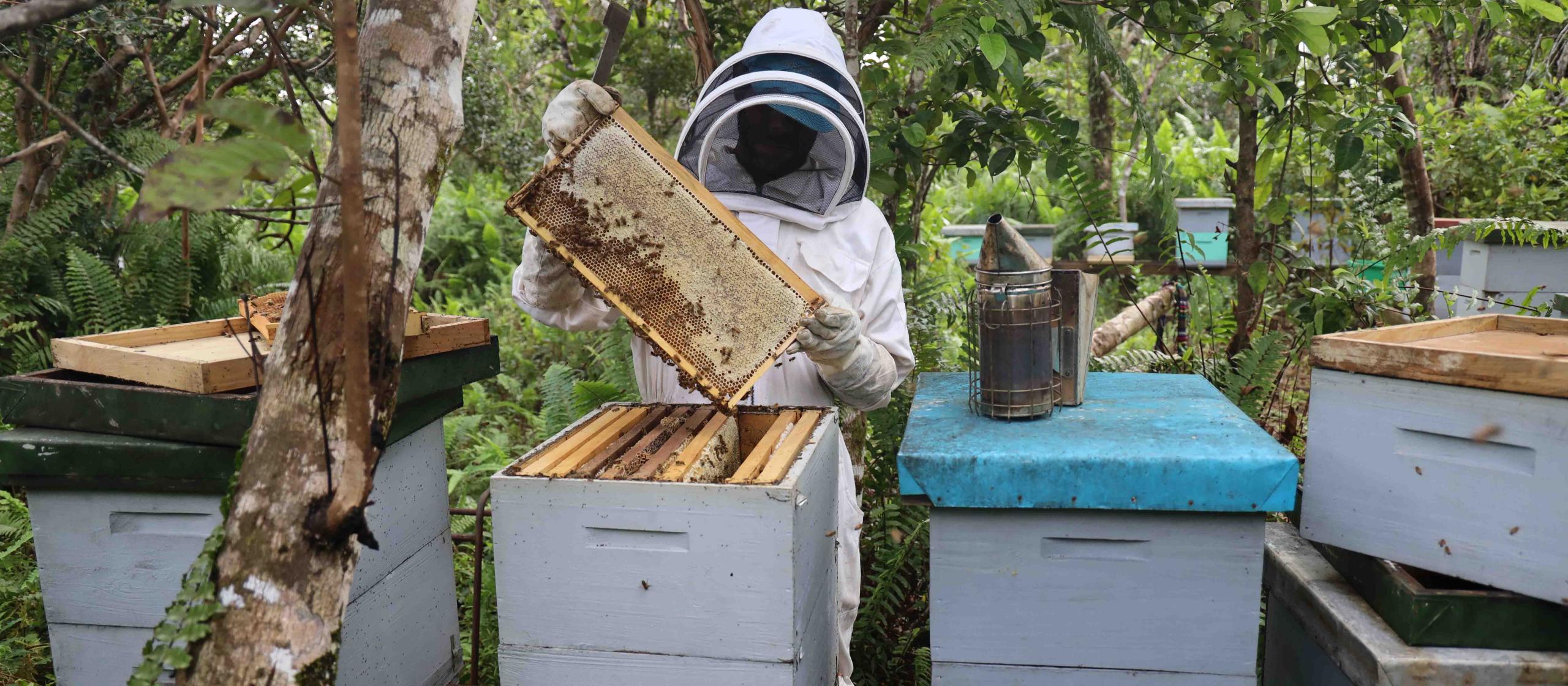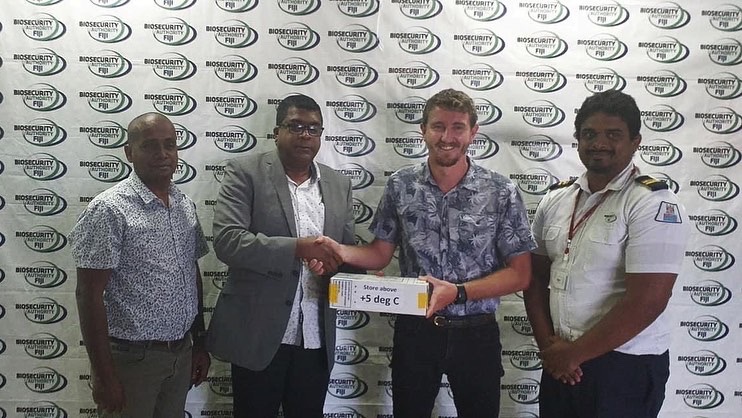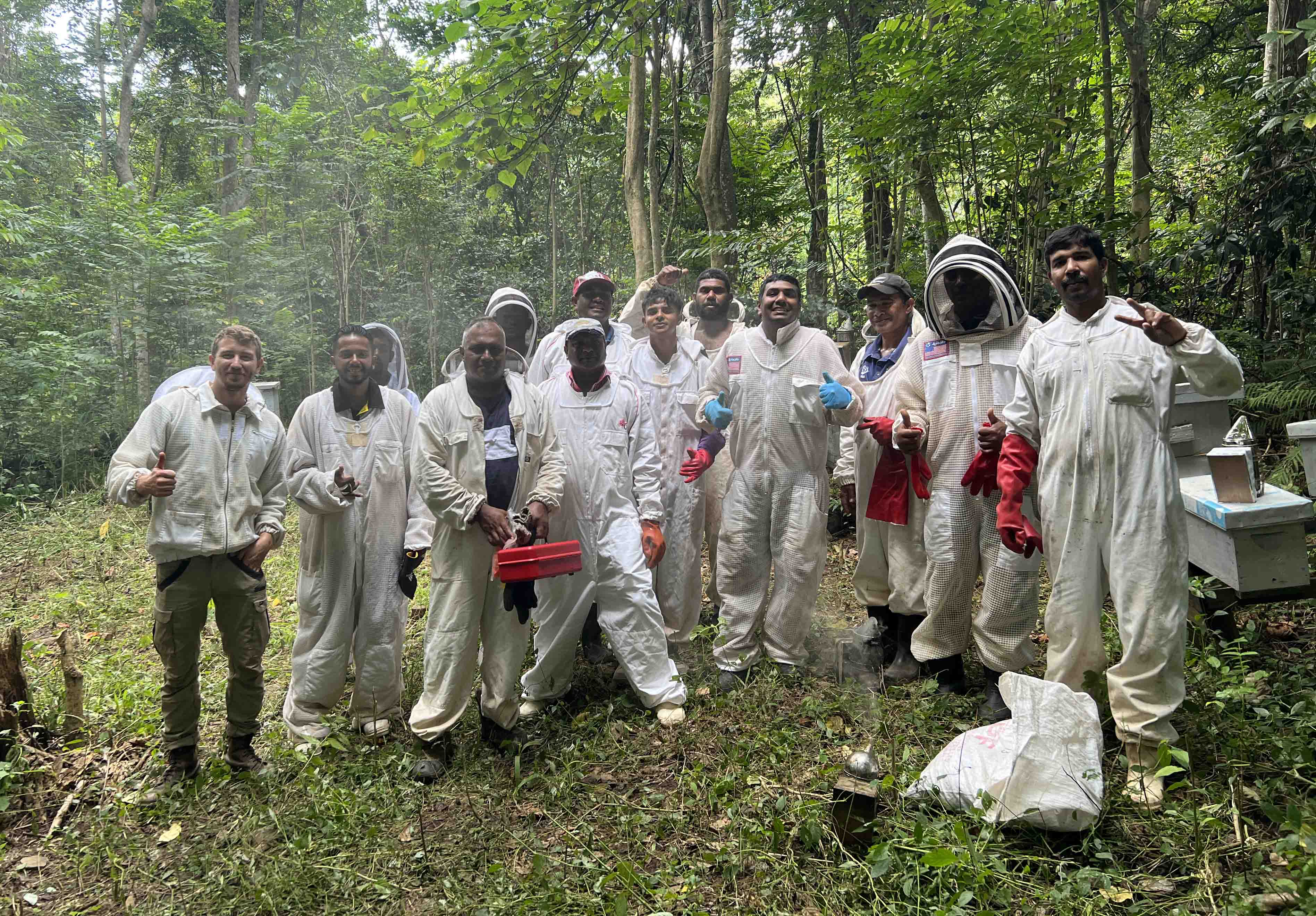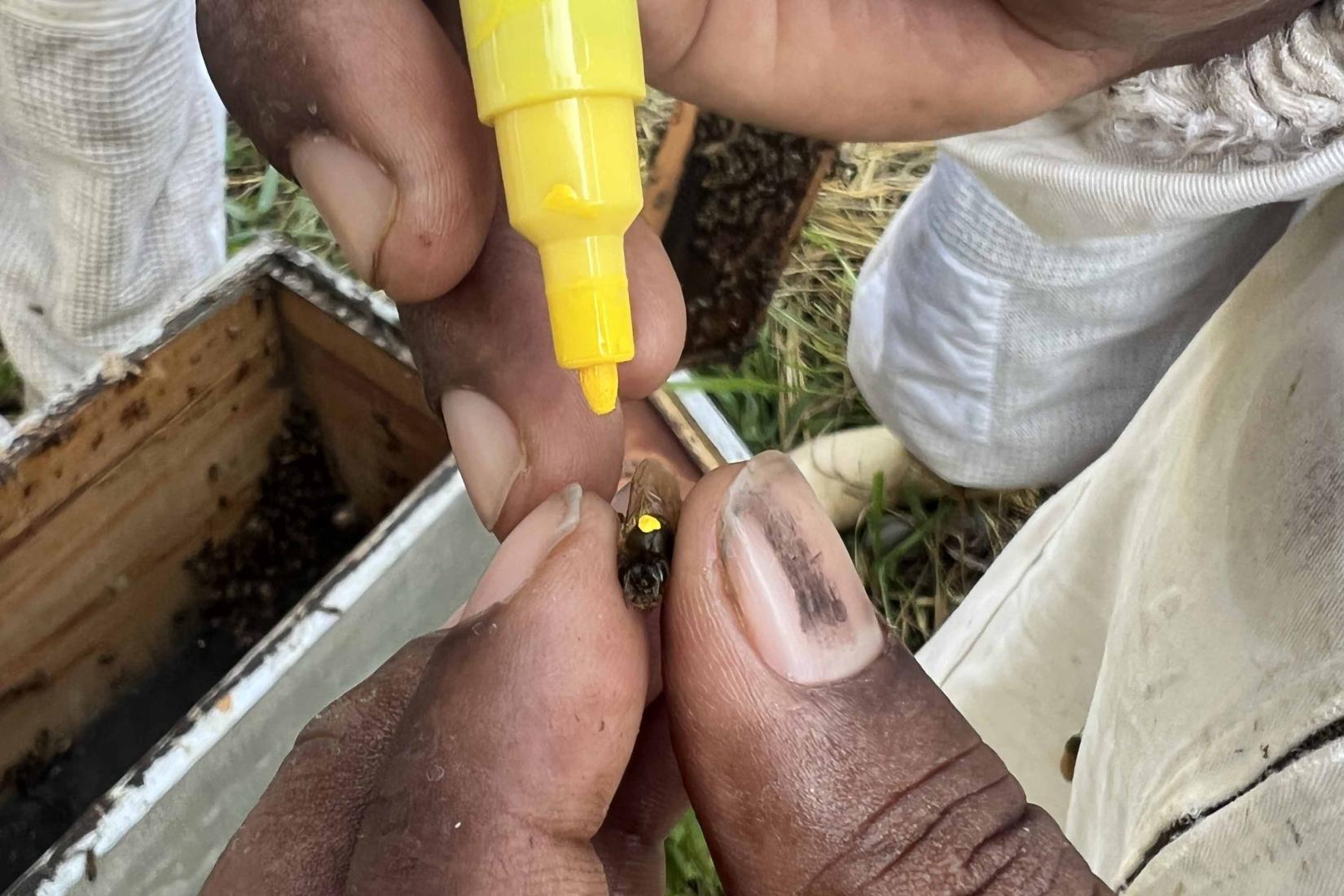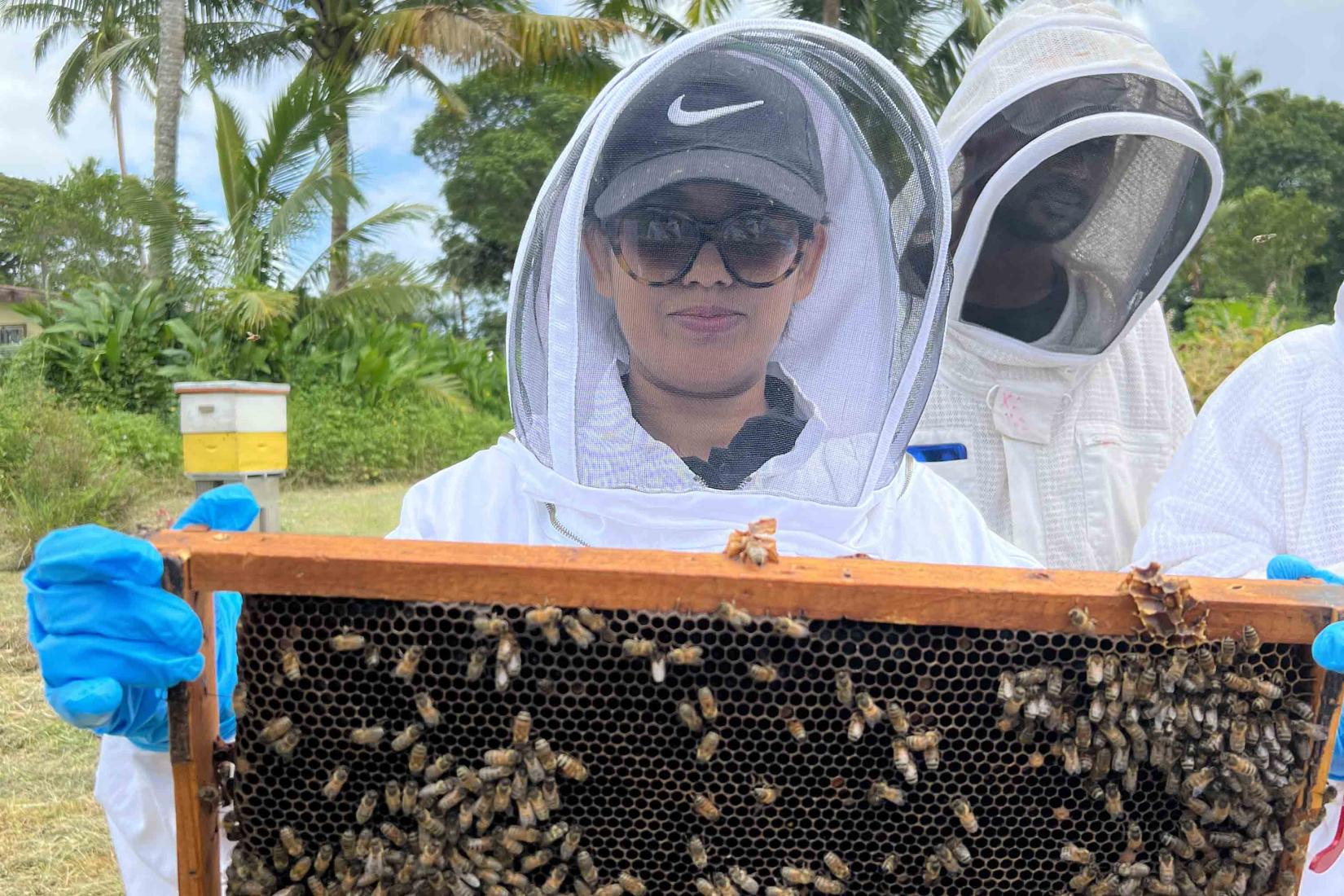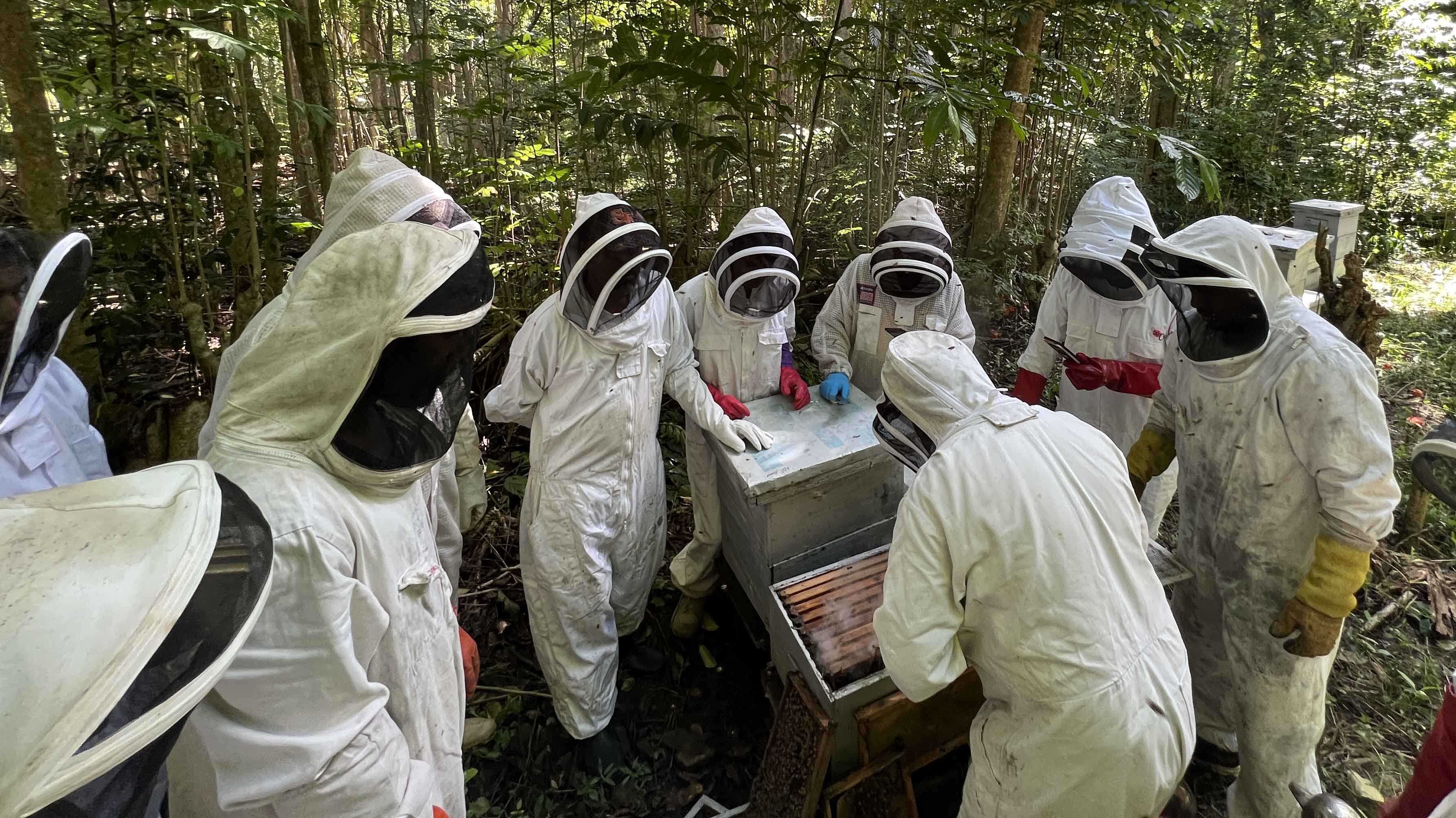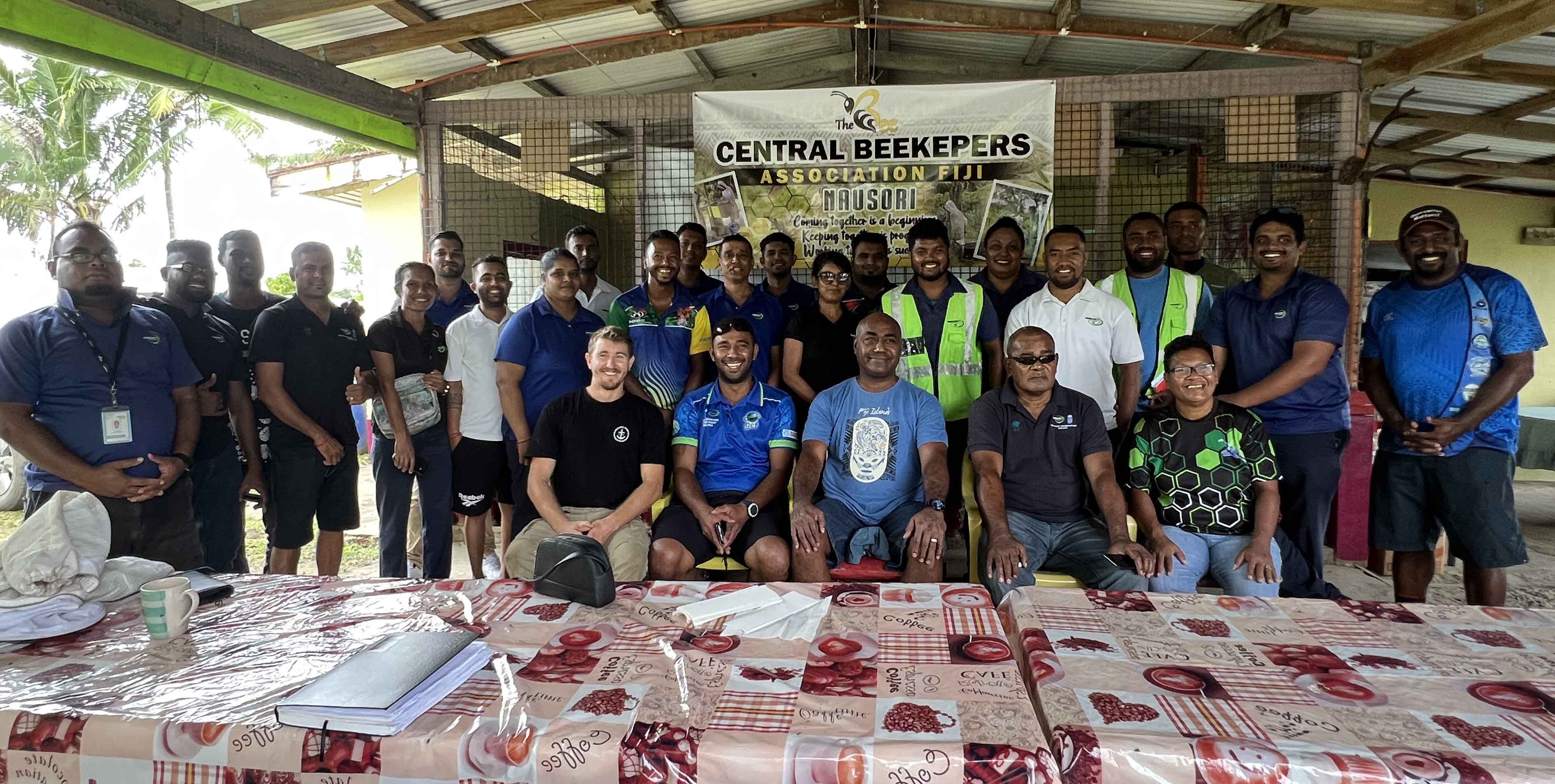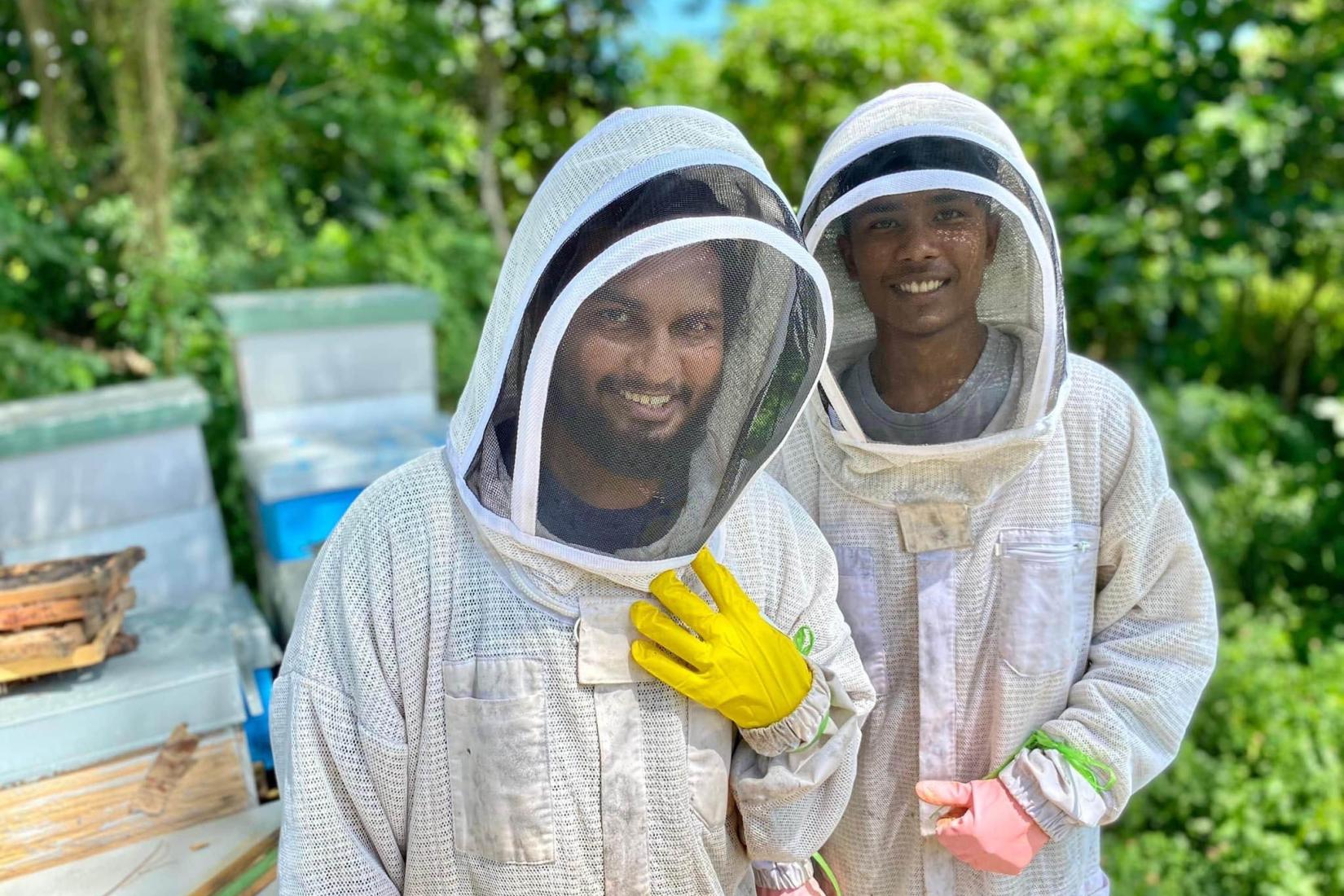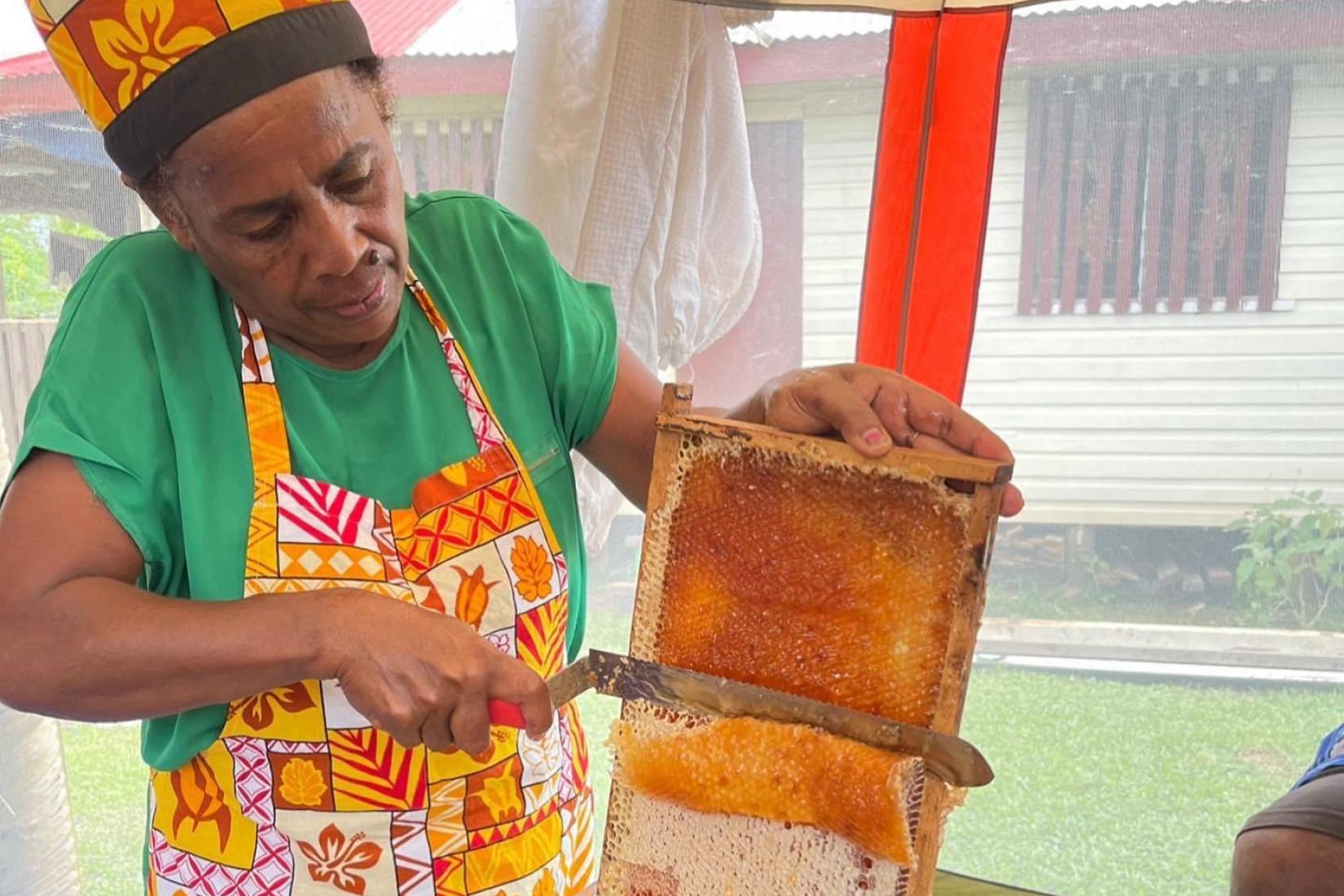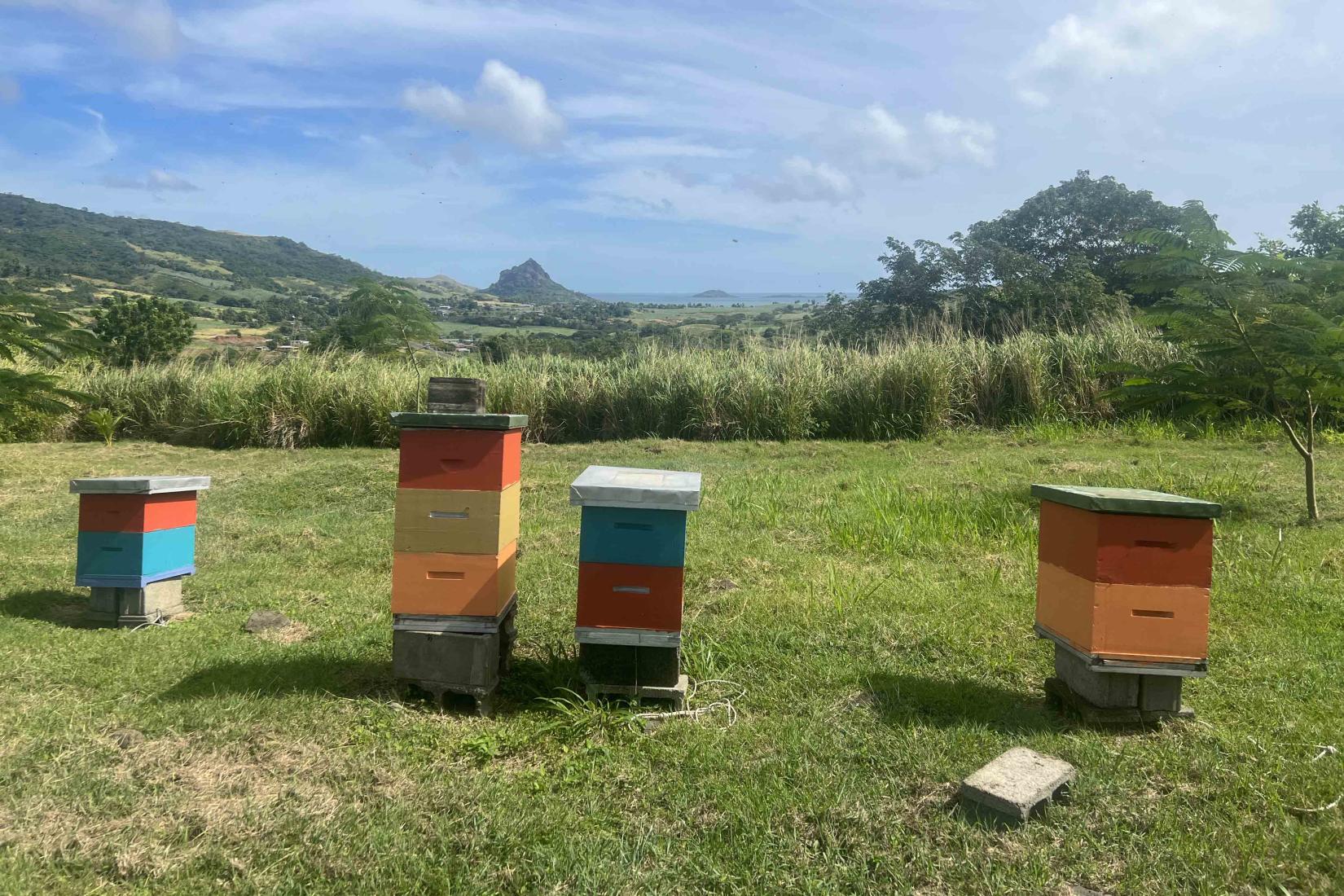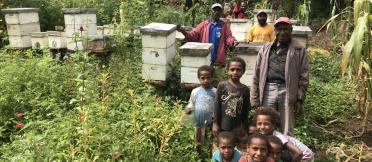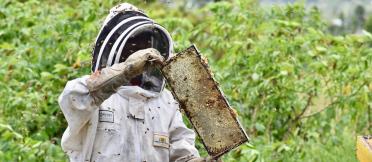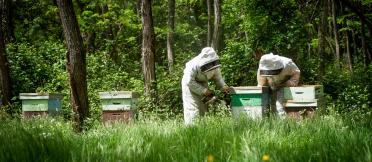‘The English black bees (Apis mellfiera mellifera) originally introduced into the Pacific bee industries in the mid-1900s have become less desirable compared to genetically improved stock from other regions. The recent importation of Italian bees (Apis mellifera ligustica) is a great steppingstone to improved genetics for Fiji promising higher production and gentler bees. This will mean more honey, more money, fewer stings, more fun, and greater knowledge retention while learning.
‘These bees are Fiji's first imported queens in more than 20 years. Understanding how Australian bees perform under Fijian conditions with pests like varroa mites also gives us insights into how our bees may respond at home, and the best biosecurity detection, monitoring, and management practices in the future,’ added Dr Schouten.
Australia is the only continent where varroa destructor—an external parasitic mite that attacks and feeds on the honey bees—is not yet endemic. The threat of the continued spread of the current incursion remains high.
Fiji’s Minister for Agriculture, the Honourable Dr Mahendra Reddy, said that Fiji has the perfect climatic conditions for beekeeping to thrive.
‘We have demonstrated our commitment to the beekeeping industry with funding to support the sector. These imported queen bees from Australia have high honey production potential and are a docile breed with the ability to fight some pests and diseases,’ said Dr Reddy.
Dr Schouten added that the bee project, in partnership with the Fiji Ministry of Agriculture, the Fiji Beekeepers Association (FBA), and the Biosecurity Authority of Fiji was also working with extension officers, the private sector and rural beekeepers to enhance capacity through various research and training activities.
‘Capacity building with and for local people is vital to the long-term success and strategic growth of the Fijian beekeeping industry, and these skills and knowledge are an asset to all neighbouring beekeeping industries in the region.
‘We are working with the key beekeeping organisations in Fiji to enhance our capacity in queen bee breeding, stock evaluation, pests and disease management, improved access to local markets, and value-adding to bee products.
‘The team is working to build the capacity of local beekeepers to become instructors to provide outcome-based training in introductory and advanced beekeeping, value-added products, and queen bee breeding as part of their bee business,’ added Dr Schouten.
